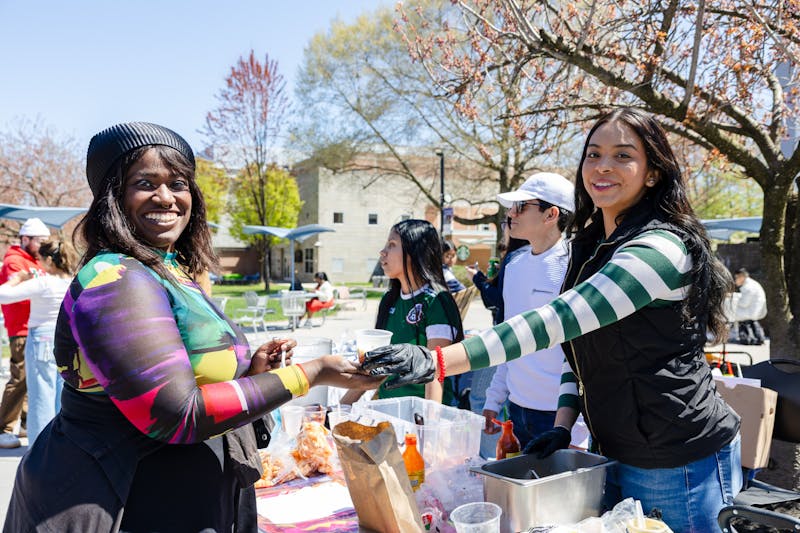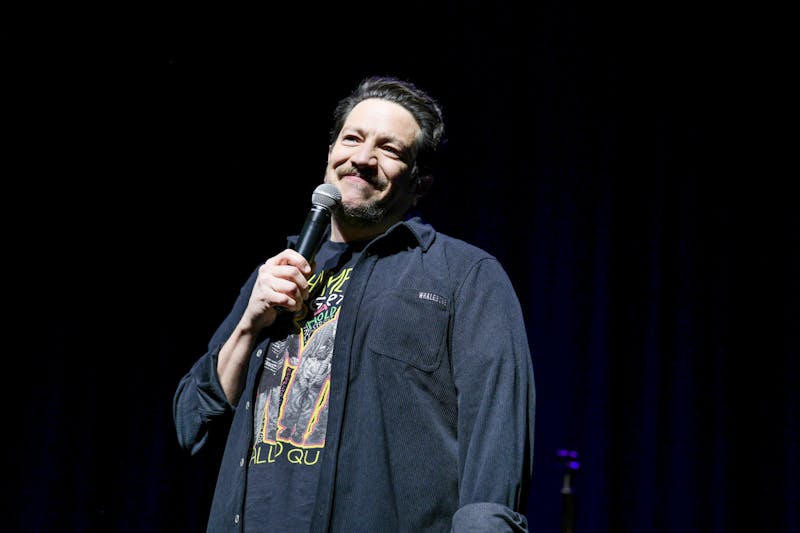The month of March is dedicated to honoring women’s history, celebrating the many accomplishments and acknowledging the contributions of women across the world. This year, the Student Life Media Team (SLMT) had the honor of speaking with some of the leading ladies of the Kean community, highlighting their past and present achievements for the advancement of students and the reputation of the university as a part of our "Women In Action" series.
Natalia Andeliz, the SLMT Social Media Manager, had the pleasure of speaking with Dr. Genique Stanislaus, Executive Director of the Kean Wellness Center for the first installment of the Women in Action series.
Q: What inspired you to pursue a career in health? What steps have led you to become the Executive Director of the Wellness Center?
A: I come from a long line of healthcare providers and civil service workers, so service has always been in my bloodline. It’s something that I’ve always been passionate about, and I knew from a very young age I was going to go into healthcare. I’ve pursued several degrees in nursing and certifications and that’s really prepared me for my role now. I definitely have always looked at the impact of health and wellbeing and how it impacts our community. So, I definitely have taken a path of researching that a little bit more, finding out how my role as a healthcare provider can impact others around us. Several steps in my career has led me to Kean University and becoming the Executive Director of the Wellness Center.
Q: What is your definition of wellness and how do you ensure that the Wellness Center reflects your vision?
A: I think we need to think of wellness outside of physical wellbeing. I think it’s a lot of mental, social, emotional wellbeing. So, I think if we move beyond just the physical sense of wellbeing, we can really capture wellness as a whole. Wellness is really about balance, resilience, and access to care. If we take all of that as a whole, we’re incorporating wellness into our daily living. We are not always going to be in wellbeing and wellness. We have to find a balance between all of it. What the Wellness Center does is we take several offices; we’ve created an environment where you can get holistic comprehensive care. You can come to one location, you can access your mental health, your physical health, you can access accessibility. We have the food pantry there and we’ve created just a really safe environment that’s judgement free, so that students can come and really attack all the different elements of wellness and wellbeing.
Q: What is an initiative or program that you are proud of and that has been proven effective on the Kean campus?
A: We’ve done a lot of initiatives at the Wellness Center since I’ve started about three years ago. I think one of the things that really is important to me is not only the mental wellbeing of students and the accessibility but it’s the physical wellbeing. At Student Health Services, we have Wellness Wednesdays that we do, and we tackle different topics. We do prevention health, we do education, we do vaccines, we do flu shots. We really want to make our students global health citizens. When they leave Kean, the wellness that they learn here is something that they can bring outside of it. So, working with Health Services and making sure that we are doing outreach on campus outside of the Wellness Center is really important. Students don’t necessarily need to come to us to understand what’s happening with them, we go to them. That’s one of the things I’m really proud of.
Q: In what ways do you aid the Wellness Center in adapting to the health and wellness trends?
A: Even outside of being an active student, we’re constant learners. So, what I do is I make sure I’m up to date on research and trends. I go to conferences; I speak to other wellness coordinators [because] I have to educate myself every day to know what’s going on in the community not just the Kean community but the community at large. One thing I would say to students is never stop learning, never stop educating yourself, and never stop really keeping up to date on what’s happening. I do a lot of data collection at the Wellness Center. We collect our data and based on what we collect, that’s how we develop programs for students. We know that flu is something that’s in our environment right now, so we do flu clinics for students, and we do it for employees as well. We know that mental health has been a struggle for students, so we do outreach, we do groups. It's about collecting data, using that information to develop programs so we can meet students where they are and make sure that we’re addressing their needs.
Q: What has been the general response from students that have used the Wellness Center's services?
A: We’ve had an overwhelmingly positive response. It’s always so meaningful when a student takes the time out of their day to email me and to let me know that they’ve interacted with one of my team members or they’ve interacted with an office. Because of that interaction we have created more stability, and we’ve changed the situation for them. It’s always so meaningful to get that feedback from students knowing that it’s not just about coming into the office and seeing someone [but] that the person that they saw or that the office they interacted with actually had a really positive and meaningful impact on them. That’s the most positive thing that we get. We get feedback from students that they enjoy the renovations, they enjoy our accessibility services. So, it’s just really positive to know that we’re impacting our students.
Q: What are your long-term goals for the Wellness Center? What resources would be needed to reach those goals?
A: When we are talking about long term goals, I think beyond Kean. We don’t want the students just to benefit from our services while they’re here. One of the things that we talk about a lot is we want students to be aware of their healthcare needs, we want them to have access to healthcare services, and we want them to be able to advocate for themselves. My long-term goal is to create programs and education where we increase awareness, access, and advocacy for our students so that when they leave Kean, they’re able to take these things that they learned here, and they are able to implement them in their life going forward. And what we need to do to be able to do that is we need to have a greater footprint on campus. We need to get outside of the Wellness Center, we need to be on campus, strategically placed so that we can interact with students. Not when they’re sick, when they have anxiety or depression, but even on the days that they feel good, we want to let them know that we’re still here for you. We have education programs; we have outreach programs that are available to the students. We also want to make sure that they know that we are a safe place for them to come. We have students that come in, they don’t know what they need but they end up in the Wellness Center. We're able to identify that maybe it’s not us that you need. Maybe we connect you with your Academic Advisor, we connect you with a tutor. So, I just want a long-term goal to have a greater footprint on campus and I want students to be able to leave here with an awareness that they’re valued and that they’re important and that they can advocate for themselves after they leave Kean.
Q: In regard to overall health and wellness, what do you wish students knew more about, or advice would you give to students?
A: I think the most important thing is to know that there are so many resources on campus for students. I think there are resources that students don’t even know exist. So, I think informing yourself and making sure that you are aware of what is available to you as students is one of the most important things. Because if it's something that I can’t provide at the Wellness Center, we’re going to connect you to those resources. So being aware of what's available. You guys are here for four years plus, why not take advantage of some of the resources that are here for you. Also knowing that if your institution can’t offer you resources, you need to connect with outside resources. You need to advocate for yourself, you need to speak up for yourself whether its academic, whether its health, you need to make sure that you’re advocating for what you need on a daily basis because honestly when it comes to down to it, you’re going to be your best advocate you’re going to be the best person that’s going to say this is what I need right now, this is what I need help with. So, I think the most important thing to teach young people beyond being here when they leave the university is always advocate for yourself, always make sure that you’re aware of the resources, make sure you have access to those resources.
We would like to thank Dr. Genique Stanislaus for taking the time to participate in our Women in Action series. It was an honor to feature the accomplishments and efforts that contribute greatly to the actions of the Wellness Center and the Kean University community. Look out for more empowering stories throughout the month of March.
Watch part 1 of the Women in Action series, here:
"Women in Action" Series PT. 1 Featuring - Dr. Genique Stanislaus






